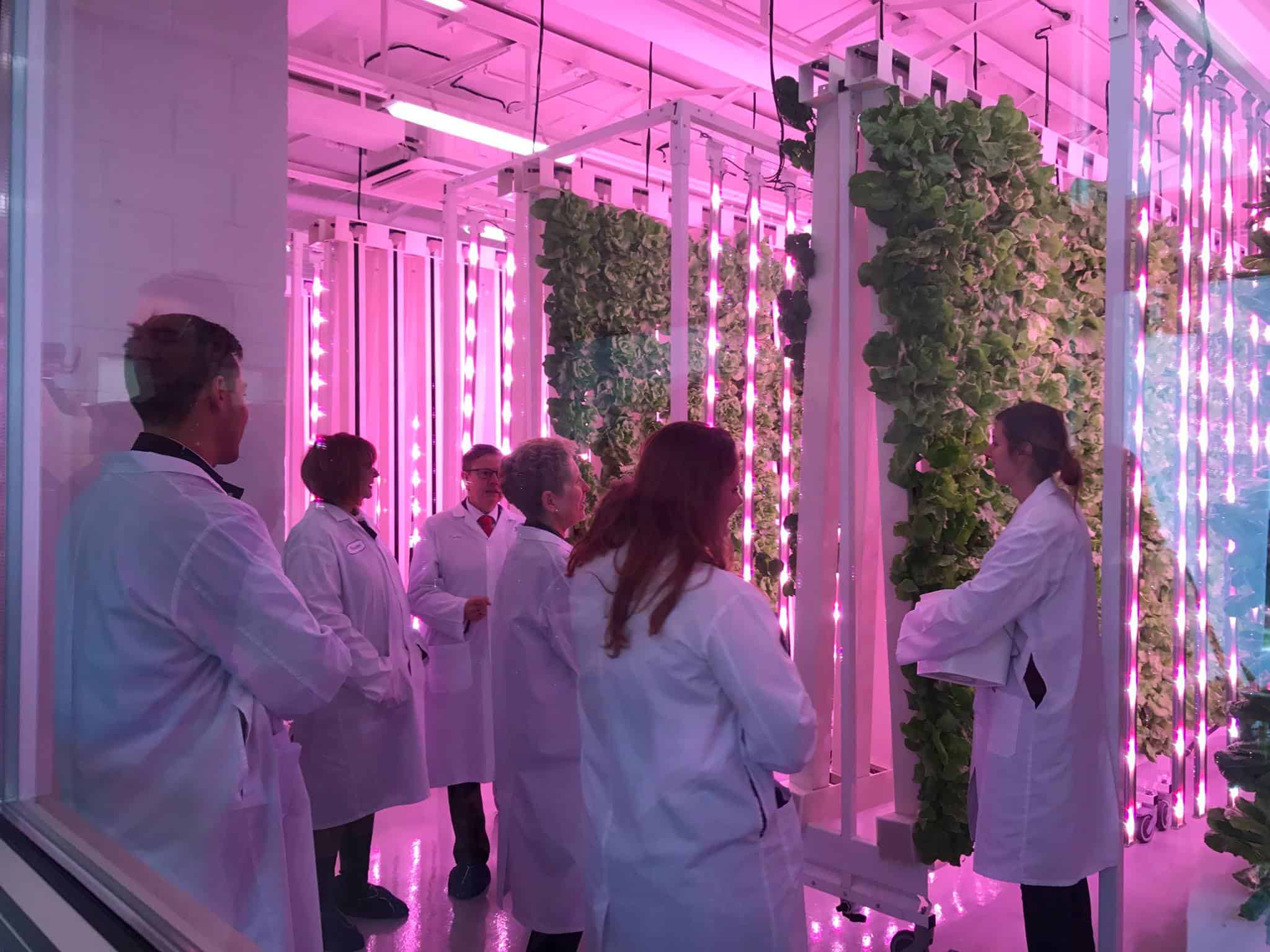Fresh salad greens and fragrant basil leaves are thriving at Operation Grow—no matter what the weather. Once harvested, this hydroponic produce will be sold at a farmer’s market, or go into the jars of pesto that are sold at the on-site store, or garnish the pizza at a local restaurant. The profits feed back into this social enterprise that’s changing women’s lives and taking an innovative approach to social change.
“We designed Operation Grow to meet the needs of third-generation women who had been accessing our women’s shelter,” says Haily MacDonald, Director of Operations at Huronia Transition Homes in Midland, Ont. “We had served their grandmothers, mothers and were serving them, recognizing the link between the cycle of poverty and the cycle of violence.”
These women told the shelter about the obstacles they faced to breaking those cycles. They spoke to going hungry, feeling isolated, and being broke. So Operation Grow, which receives funding from the Canadian Women’s Foundation, set out to help change those circumstances in a new way. It provides low-barrier opportunities for women to get training and stable employment.
After studying best practices for social enterprise, the staff at Huronia envisioned not only the vertical farm—where women could build employment skills—but also a space to foster community, and to offer healing through yoga and meditation. “We wanted them to start building confidence that, ‘Yes, maybe I can do this — I can come to work’,” says Kathy Willis, Executive Director at Huronia Transition Homes.
“And we do see incredible success … we are seeing women move from this program on to full-time employment, or go back to school.” One example is a participant who has gone on to become a personal support worker. “Operation Grow was a catalyst for her,” MacDonald says. “She felt empowered and began to engage with other services, and she’s still involved with our program.”
Having grown to serve about 100 members over the past two years, Operation Grow offers women two paths toward employment. One is the vertical cultivator program, where participants learn to cultivate produce in the cutting-edge hydroponic facility. They can then work paid shifts for 3 hours a week, to build experience and supplement their income. The second path is the maintenance worker program, where participants receive training to help run Operation Grow’s room rental and catering services. Women get a certificate of completion and a portfolio of the certificates they’ve acquired through these programs.
Along with building new employment skills, Operation Grow members play a role in guiding organization’s events. In response to member interest, for example, there was a session on the federal election and voting. There are also workshops on skills like resume-writing, as well as cooking and nutrition, and trauma-informed yoga.
Given that about 80 per cent of the members are living in poverty, Operation Grow aims to eliminate barriers to their participation. They also receive uniforms and have access to on-site shower facilities. Women can buy the food that’s grown at the farm at a reduced cost.
Overall, the program takes a supportive role. Given that some women may use substances as a coping mechanism, “we meet them where they’re at, and support them in participating,” says Willis.
One member who experienced childhood sexual abuse and trafficking speaks of the program as “an anchor in her life” that helped her reduce her use of substances. Another woman, who barely left her house before getting involved, now goes to Operation Grow twice a week.
In future, the program aims to offer women full-time employment options and to become self-sustaining. Although social enterprise is a new and challenging approach, it has the capacity to get at the root causes of the barriers women face. “As anti-violence workers, we’re often limited when it comes to making systemic change,” says MacDonald. “But Operation Grow does that—it connects social, environmental, and economic goals. It puts women who are marginalized at the forefont of a business that’s balancing those three components. When you buy here, you’re supporting a different value chain—and you can be proud of your purchase.”
This post is part of the Meet The Tireless series: interviews featuring inspiring people and groups who use their talents, expertise, and resources to help advance gender equality in Canada. Visit JoinTheTireless.ca to find out what you can do.







